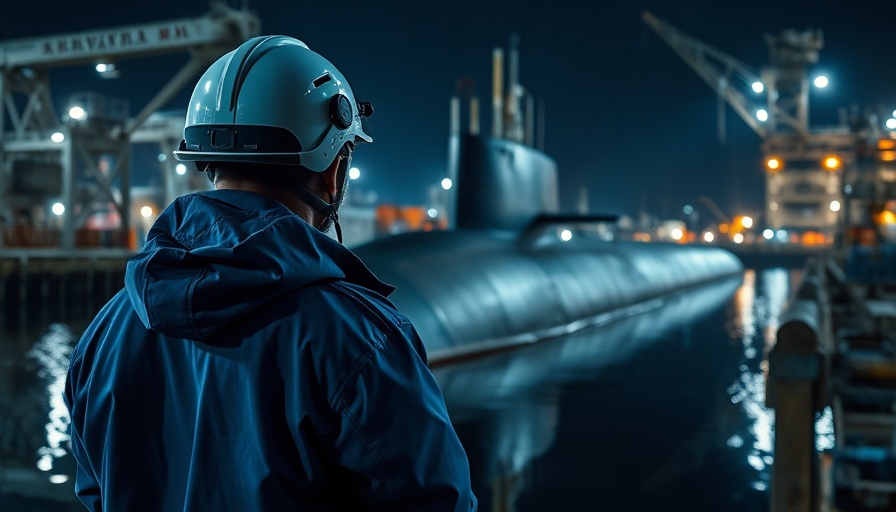
Morocco's Submarine Acquisition: A Strategic Battle Between Naval Group and TKMS
In a notable move reflecting its growing maritime aspirations, Morocco's navy is set to acquire two military submarines, igniting a fierce competition between European shipbuilders, notably France's Naval Group and Germany's ThyssenKrupp Marine Systems (TKMS). This endeavor highlights not just military strategy, but Morocco's ambition to assert its naval strength in a region marked by rising tensions.
The Stakes of Morocco's Naval Growth
The Moroccan government has made a clear statement about its intent to enhance its naval capabilities. This decision is driven by a combination of geopolitical factors and a desire to modernize its military fleet as a countermeasure against neighbors such as Algeria, which maintains a significant submarine fleet. As Morocco evaluates its options, the implications of its choice extend beyond mere military enhancements, potentially affecting regional power dynamics.
Suppliers in the Spotlight: Naval Group vs. TKMS
Both manufacturers are enhancing their bids not just to supply submarines but to build strategic alliances with Morocco. Naval Group seeks to provide the Scorpène-class submarine, known for its stealth and combat readiness. Alternatively, TKMS is championing the HDW Class Dolphin, recognized for its endurance and advanced technology. The competition is intensive because securing the contract means not only a substantial financial investment for the winner but also increased influence in Morocco's defense sector.
Historical Context: A Long-Standing Ambition
Morocco's pursuit of submarines is not a new ambition. Reports indicate that discussions regarding submarine acquisitions have been ongoing for years. Historical attempts have been frustrated by budget constraints and political considerations, pushing Morocco's maritime aspirations on the back burner. However, with the current regional landscape necessitating a stronger naval presence, the time has come for Morocco to revisit these plans.
The Technological Edge: What Sets the Contenders Apart?
One of the critical aspects Morocco faces in its choice is the technological capabilities offered by each submarine class. The Scorpène is equipped with an integrated combat system and advanced propulsion technologies, ensuring a versatile operational scope. Conversely, the Dolphin class highlights high operational value and incorporates a fuel cell system for extended submerged missions. Morocco must weigh these features against its specific operational needs.
Geopolitical Implications: Regional Power Dynamics
Morocco’s expansion of its navy sends clear signals in the regional geopolitical environment. Tensions with Algeria have heightened, particularly as the latter continues to develop its own naval capabilities. A robust Moroccan fleet could deter potential aggressions, while the choice of supplier may align Morocco closer with Western powers or diversify its military partnerships.
A Broader Perspective: Aligning with Global Trends
This submarine deal is emblematic of a larger trend seen across Africa, where nations are increasingly investing in military capabilities. Countries are modernizing their fleets not just to safeguard national interests but also to secure their positions in an evolving geopolitical landscape marked by threats ranging from piracy to terrorism. By acquiring advanced naval capabilities, Morocco is positioning itself as a pivotal player in maritime security in North Africa and the Mediterranean.
What’s Next for Morocco?
As Morocco weighs its options, the final decision is not just about choosing a supplier; it represents a broader strategy on how it intends to project power and influence in the region. Whether opting for France’s enduring partnership through Naval Group or Germany’s innovative technologies with TKMS, the choice will significantly affect Morocco’s military trajectory as it navigates a complex and often turbulent regional landscape.
With its eyes set firmly on enhancing maritime security, Morocco continues to forge its identity as a rising strategic power.
 Add Row
Add Row  Add
Add 


Write A Comment